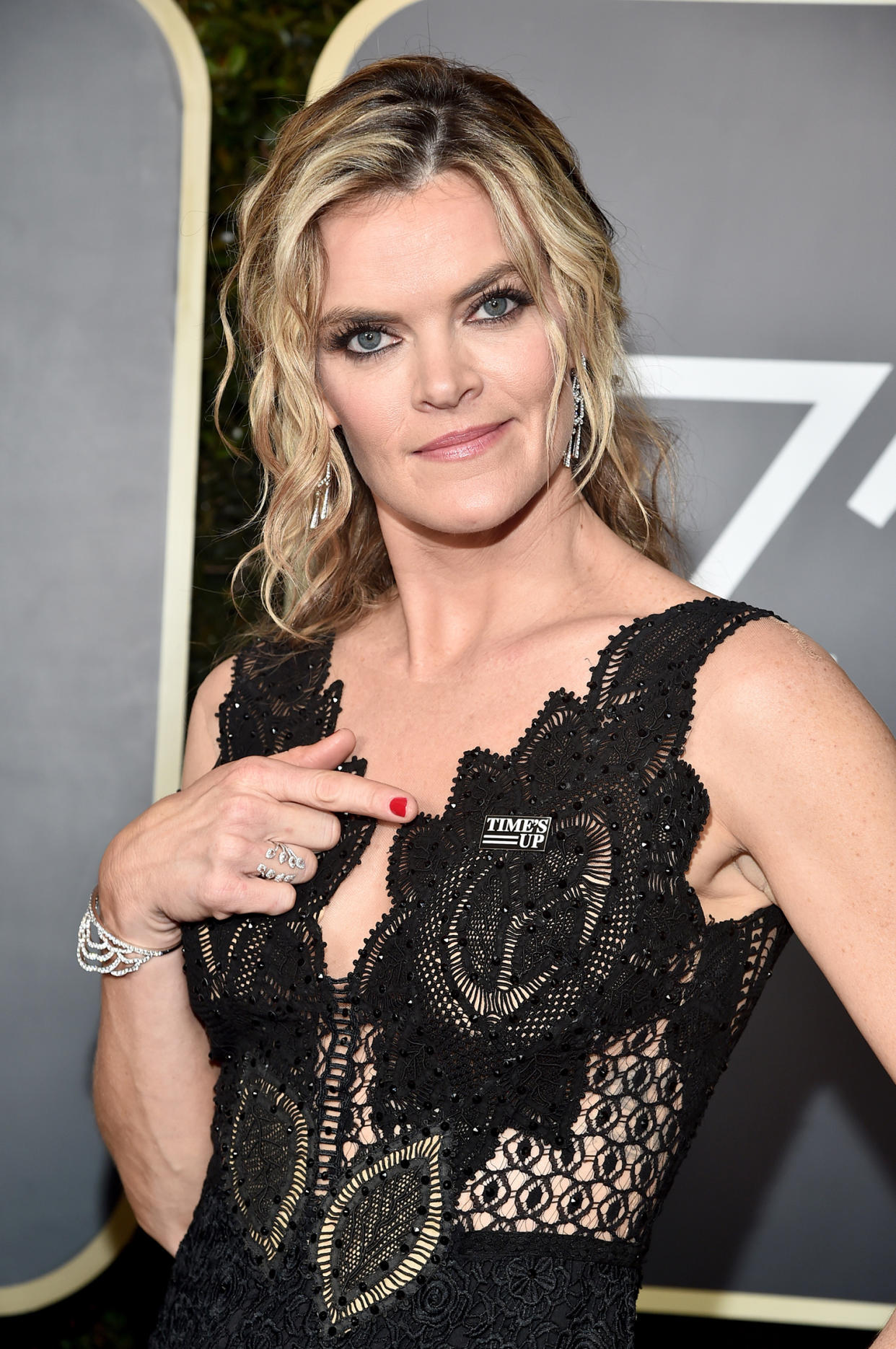Why asking 'Who are you wearing?' on the red carpet is still relevant — even in light of Time's Up

On the red carpet before the 75th Golden Globe Awards, Hollywood’s elite (almost) universally wore black in solidarity with the Time’s Up initiative, pledging to end inequality and sexual harassment and assault in the workplace. But a blackout need not be stylistically boring, and this one brought plenty of variety and outstanding fashion moments.
Tracee Ellis Ross wore a Marc Jacobs ensemble replete with a black silk turban; Gucci darling Dakota Johnson wore an intricately embellished gown from the Italian house; and Debra Messing opted for a Christian Siriano dress-trouser hybrid.
Still, fashion choices were left largely unacknowledged during red carpet interviews — a seismic shift from the past two decades, in which the customary question has been, “Who are you wearing?” Instead, celebrities were asked about their nominated roles and activism and careers. It was an evening in which “Ask her more” — the Representation Project’s movement “challenging the limiting narratives that a woman’s value lies in her youth, beauty, and sexuality,” which called on the media to avoid the typical gendered conversations around hair and makeup and clothes for women while men are asked to elaborate on their deepest musings — became reality.
Still, one can’t help but wonder if the long-overdue correction may need to evolve further through this awards season and beyond — coming to terms with the fact that both activism and fashion are exciting for many. Or, as novelist and Dior muse Chimamanda Ngozi Adichie puts it, “Why can’t smart women love fashion?”

Certainly fashion — the garments; the choice of designer, accessories, and hair and makeup — can be meaningful in itself. Take Alison Brie (“Tonight is about women wearing the pants, so I chose to literally wear the pants,” the actress said); or Viola Davis’s unapologetic natural hair moment; or Michelle Pfeiffer in Christian Dior haute couture by Maria Grazia Chiuri, the first female creative director at the storied French maison. Indeed, design houses are pledging their support to Time’s Up, as is the case for Calvin Klein (which dressed Millie Bobby Brown and Sarah Paulson) as well as Tiffany & Co.
And, as one Twitter user wondered, shouldn’t credit be given where credit is due?
If E! doesn't want to ask about the designer of the dresses everyone's wearing, they should get the info pre-interview and credit them onscreen. People worked hard on that lewk. #GoldenGlobes #WhyWeWearBlack #TimesUp
— Tom & Lorenzo (@tomandlorenzo) January 7, 2018
Another fashion conversation not acknowledged was the absence of even a single Marchesa gown on the red carpet — important, considering that the brand’s founder Georgina Chapman is Harvey Weinstein’s estranged wife and is typically a go-to for actresses on the red carpet. The question not asked: Should Chapman be punished for her husband’s behavior? Do cogs in the complicity machine deserve retribution?
All of which is to say, red carpet reporting still isn’t perfect — far from it, in fact, with networks like E! continuing to belittle groundbreaking artists like Issa Rae.
But being a fashion maven and an activist needn’t be mutually exclusive. Time’s up on the stereotype that fashion is always frivolous.
Read more from Yahoo Lifestyle:
Sharon Stone wore one of the most revealing dresses at the Golden Globes
Smooch! Diane Kruger and Norman Reedus finally make it official at 2018 Golden Globes
Follow us on Instagram, Facebook, and Twitter for nonstop inspiration delivered fresh to your feed, every day.
